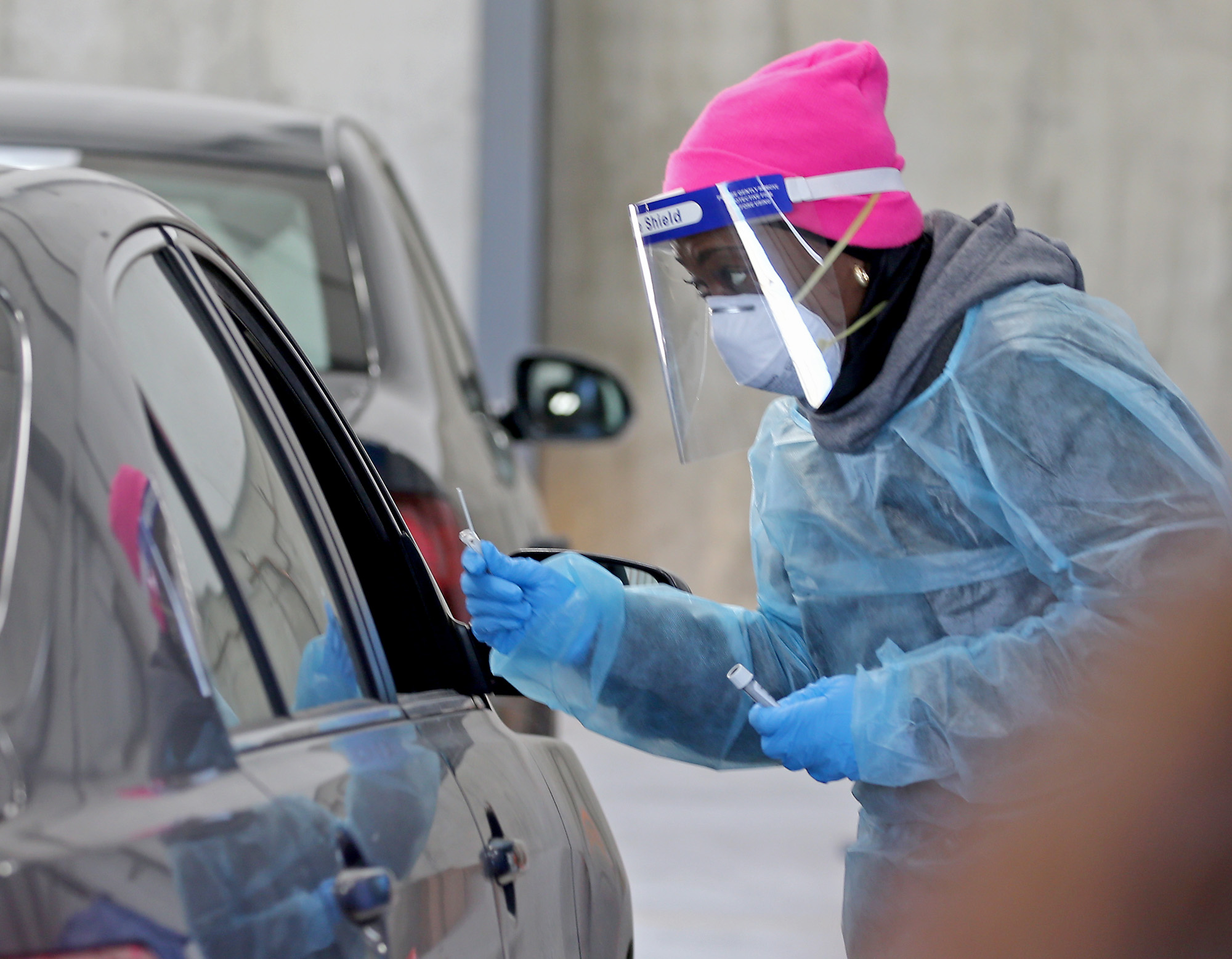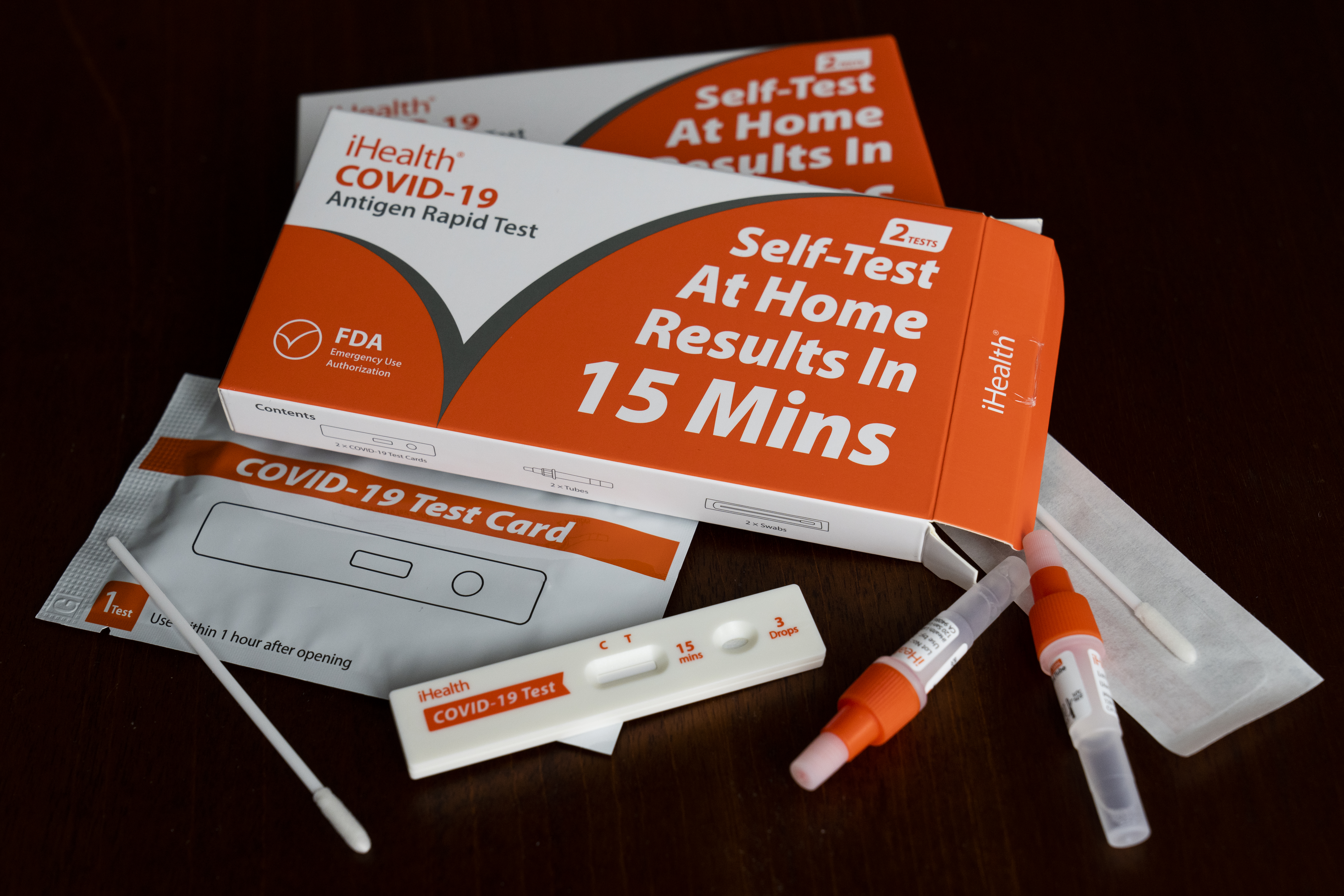Starting Monday, Massachusetts hospitals will differentiate between patients they admit primarily for COVID-19 and those admitted to be treated for something else who end up testing positive.
The idea is to give the public a better understanding of how many people are in the hospital because of the virus. But while that data began to be collected Monday, it won't be released by the Massachusetts Department of Public Health until January 17, officials said.
Coronavirus metrics in Massachusetts have been spiking to heights not seen since last winter's surge, thought to be driven at least in part by the omicron variant. Meanwhile, hospitals are dealing with staffing shortages that are further stressing the system and limiting bed capacity.
Get New England news, weather forecasts and entertainment stories to your inbox. Sign up for NECN newsletters.
The Department of Public Health said last week that hospitals will start reporting whether admissions are primary or incidental to COVID-19. The differentiation will be based on whether the patient is given dexamethasone, an anti-inflammatory steroid used to treat the majority of COVID-19 patients who are hospitalized.
Another 26,187 confirmed COVID-19 cases were reported in Massachusetts Friday, along with 55 new confirmed deaths. Friday's single-day total is shy of the record, set on Wednesday, by 1,425 cases, though it's still the second-highest single-day total in Massachusetts of the pandemic so far.
The number of patients in Massachusetts hospitals with confirmed COVID-19 cases rose to 2,637, the most since May 16, 2020. The figure reached nearly 4,000 early in the pandemic, but dipped under an average of 85 at one point this July. Of those currently hospitalized, 1,106 are fully vaccinated, 421 are in intensive care units and 245 are intubated.
But doctors are reporting that COVID hospitalizations are different now than they were earlier in the pandemic.
"Right now, we have just over 100 people on the regular medical floors who have a COVID diagnosis, but only 18 or so in the ICU, so that’s about a 5-1 ratio. That was very different at the start of the epidemic, where it was more one to one," said Dr. Daniel Kuritzkes, of Brigham and Women's Hospital.
"In my institution right now, those with no symptoms, but they've been tested, 17% turns out to be positive," said UMass Memorial Health Infectious Disease Specialist Dr. Mireya Wessolossky.
She says that's why she's encouraged the state is starting to track these numbers separately.
"They're two different types of patients, you cannot compare pears and apples," said Dr. Wessolossky.
Kuritzkes says while it won't impact day-to-day operations or bed allocation, the data is important for other reasons.
"I think it will help bring some clarity to what the actual situation is, with respect to how many people are getting hospitalized because they're sick with COVID," he said.
Rep. Jon Santiago, who is also an emergency room doctor at Boston Medical Center, tweeted earlier this week that during a recent stretch of ER shifts, a "significant number of my COVID patients fell into 2 buckets: mild symptoms & discharged OR were admitted for non-COVID reasons BUT tested positive for COVID (all admitted patients are tested)."
"Of course, that presents a different set of challenges but the fact that many patients weren't primarily admitted FOR COVID but rather for other medical issues should add nuance to the 'COVID hospitalization' numbers," Santiago wrote. "This shouldn't take away from the bed crunch we face, a serious issue already present pre-COVID..."
He said hospitals in Boston and elsewhere are challenged by the number of homeless patients who test positive with mild COVID-19 symptoms and need a place to isolate while they are contagious and by dialysis patients who cannot go to their usual dialysis centers.
"Where do they end up? To the ER they go! To wait for hours (or days!) in a hallway until a precious bed opens up when the VAST majority of these patients don't have to be in the ER or hospitalized for medical reasons," he tweeted. "Again, says more about our healthcare system than anything else."



